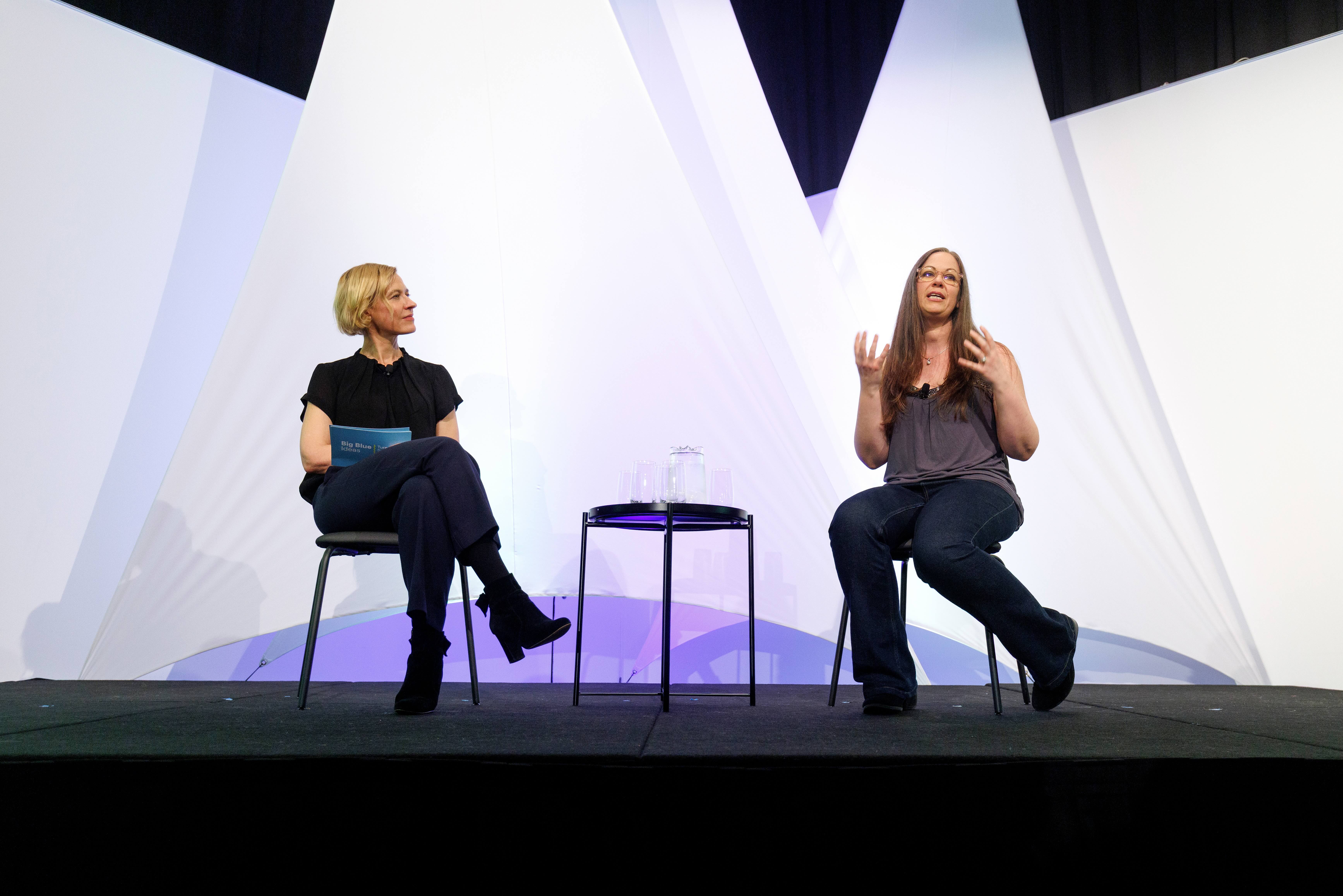


Small changes and Big Blue Ideas
How do we reduce the amount of plastic in our world?
On August 14, Jennifer Macklin, our resident expert in Circular Economy, joined the panel for ‘Plastic - the Final Straw?’, part of the Sydney Maritime Museum’s Big Blue Ideas events program.
Hosted by Emily Jateff, the discussion brought together Jennifer, Craig Reucassel, Dr Julia Reisser and Kal Glanznig to explore a provocative question: is plastic the health crisis of our time, or are we blowing things out of proportion?
Jennifer offered thoughtful insights throughout the session. Here’s a snapshot of her responses to some of the key questions raised during the panel:
Emily Jateff: What exactly is a 'circular economy'?
Jennifer Macklin: The circular economy is an idea, or approach, that moves beyond simply looking at and talking about waste. It encourages us to think more holistically about the resources we use across our economy and society. It's about extracting fewer resources from the environment by using less and making the most of what we already have.
This means keeping infrastructure, buildings, and products in use for as long as possible. It involves finding ways to reuse, repair, upgrade, and repurpose them when needed. And when those options are no longer viable, we return to what many of us are familiar with: recycling, so the materials can be used again.
In many ways, the principles of a circular economy reflect how our grandparents lived – though today, we have many new ways of putting those principles into practice.
How do we change our behaviours in the face of a system that feels like it’s working against us?
The first thing to recognise is that, in many ways, the system is working against us. There are powerful vested interests driving the production of more and more stuff – encouraging us to buy, discard, then buy more.
So be kind to yourself. Be realistic. You don’t need to do everything at once, and there’s no need to feel guilty if you can’t. Start by looking at how your actions contribute to impact, and choose one area to focus on. Begin with relatively easy changes, the low-hanging fruit, and set a couple of more ambitious goals to work toward. Stay with that area until you feel you’ve done what you can, then move on to the next.
Just as importantly, don’t shoulder all the responsibility alone. Ask: who else is part of this system? What organisations, businesses and governments are trying to do better, and how can you support or join them? And for those that aren’t, how can you let them know you’ve noticed, and that it matters to you?
The key thing to understand that while we can all do little things to reduce our plastic impact, what we really need is to change our systems – so we shouldn’t feel guilty about not being able to do more, and we could usefully direct whatever time/energy we have towards finding ways to advocate – to our governments and businesses, rather than to try and take on the burden individually.
So I'm out and about, and I'm thirsty and I've forgotten my reuseable water bottle...do I buy a bottle of water?
Yes!

What’s your big blue idea for solving the plastics problem?
I’m going to be a bit controversial here: my idea is that we reframe the problem – not as ‘plastic’, but as ‘disposables’. The real issue is that we’ve normalised the idea that it’s acceptable to produce something designed to be used just once.
If we can shift away from that mindset and rethink how our society operates, I believe we’ll unlock far greater change – for our oceans, our lands, and beyond– – than we would by focusing solely on what materials things are made from.
What gets your goat?
How long change takes! It’s a slow process – so much slower than we’d ever want it to be. But things are complicated and problems are enmeshed in systems; unpicking the issues, agreeing on the solutions and implementing them takes time.
What gives you hope?
That little changes are happening all the time. They might be small steps forward, but they are steps forward!






